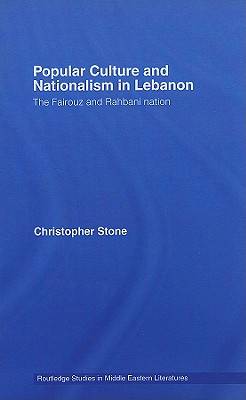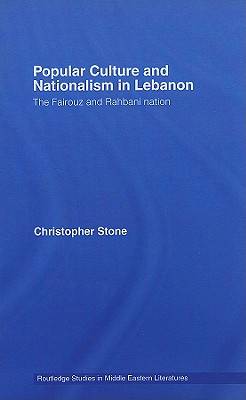
- Retrait gratuit dans votre magasin Club
- 7.000.000 titres dans notre catalogue
- Payer en toute sécurité
- Toujours un magasin près de chez vous
- Retrait gratuit dans votre magasin Club
- 7.000.0000 titres dans notre catalogue
- Payer en toute sécurité
- Toujours un magasin près de chez vous
Description
Based on an award-winning thesis, this volume is a pioneering study of musical theatre and popular culture and its relation to the production of identity in Lebanon in the second half of the twentieth century.
In the aftermath of the departure of the French from Lebanon and the civil violence of 1958, the Rahbani brothers (Asi and Mansour) staged a series of folkloric musical theatrical extravaganzas at the annual Ba'labakk festival which highlighted the talents of Asi's wife, the Lebanese diva Fairouz, arguably the most famous living Arab singer. The inclusion of these folkloric vignettes into the festival's otherwise European dominated cultural agenda created a powerful nation-building combination of what Partha Chatterjee calls the 'appropriation of the popular' and the 'classicization of tradition.'
The Rahbani project coincides with the confluence of increasing internal and external migration in Lebanon, as well as with the rapid development of mass media technology, of which the Ba'labakk festival can be seen as an extension. Employing theories of nationalism, modernity, globalism and locality, this book shows that these factors combined to give the project a potent identity-forming power.
Popular Culture and Nationalism in Lebanon is the first study of Fairouz and the Rahbani family in English and will appeal to students and researchers in the field of Middle East studies, Popular culture and musical theatre.
Spécifications
Parties prenantes
- Auteur(s) :
- Editeur:
Contenu
- Nombre de pages :
- 226
- Langue:
- Anglais
- Collection :
Caractéristiques
- EAN:
- 9780415772730
- Date de parution :
- 01-10-07
- Format:
- Livre relié
- Format numérique:
- Genaaid
- Dimensions :
- 155 mm x 234 mm
- Poids :
- 453 g

Les avis
Nous publions uniquement les avis qui respectent les conditions requises. Consultez nos conditions pour les avis.






